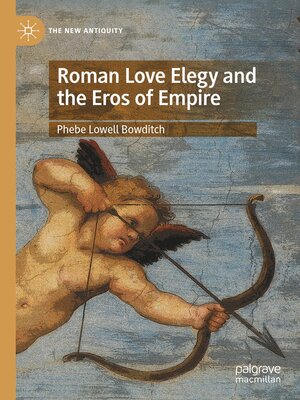
Sign up to save your library
With an OverDrive account, you can save your favorite libraries for at-a-glance information about availability. Find out more about OverDrive accounts.
Find this title in Libby, the library reading app by OverDrive.



Search for a digital library with this title
Title found at these libraries:
| Library Name | Distance |
|---|---|
| Loading... |
This book explores Roman love elegy from postcolonial perspectives, arguing that the tropes, conventions, and discourses of the Augustan genre serve to reinforce the imperial identity of its elite, metropolitan audience. Love elegy presents the phenomena and discourses of Roman imperialism—in terms of visual spectacle (the military triumph), literary genre (epic in relation to elegy), material culture (art and luxury goods), and geographic space—as intersecting with ancient norms of gender and sexuality in a way that reinforces Rome's dominance in the Mediterranean. The introductory chapter lays out the postcolonial frame, drawing from the work of Edward Said among other theorists, and situates love elegy in relation to Roman Hellenism and the varied Roman responses to Greece and its cultural influences. Four of the six subsequent chapters focus on the rhetorical ambivalence that characterizes love elegy's treatment of Greek influence: the representation of the domina or mistress assimultaneously a figure for 'captive Greece' and a trope for Roman imperialism; the motif of the elegiac triumph, with varying figures playing the triumphator, as suggestive of Greco-Roman cultural rivalry; Rome's competing visions of an Attic and an Asiatic Hellenism. The second and the final chapter focus on the figures of Osiris and Isis, respectively, as emblematic of Rome's colonialist and ambivalent representation of Egypt, with the conclusion offering a deconstructive reading of elegy's rhetoric of orientalism.







